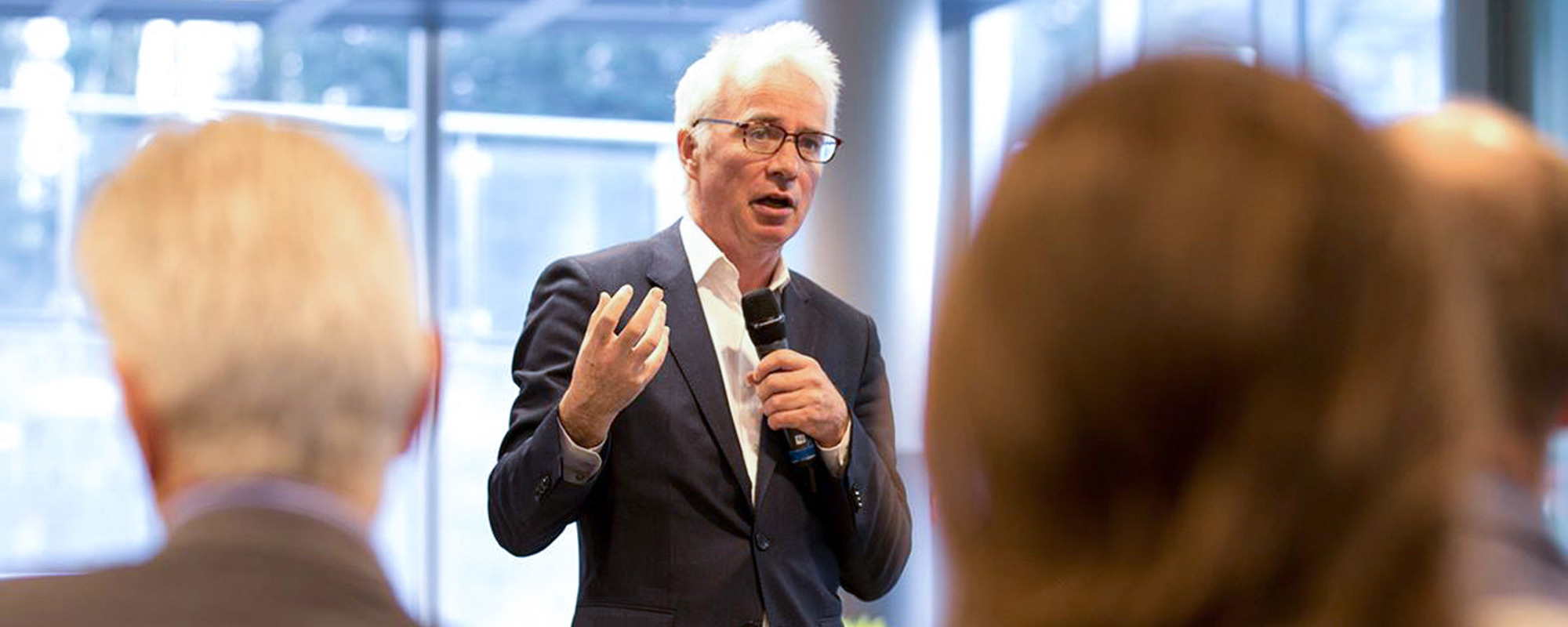

It’s Time to Confront TB Head On
There comes a time when all humanity must rise together to defeat a global threat, when nations must unite to reject an injustice. With the UN High-Level Meeting on tuberculosis in New York on 26 September, that time has arrived for the fight against TB.
We did it with smallpox in 1967, when the world mounted a campaign that achieved the unthinkable by eradicating an epidemic. We did it at the turn of the millennium, when world leaders pooled their resources to beat HIV into retreat.
Now we must do it with TB. It’s an outrage that a preventable, treatable and curable disease killed 1.6 million people last year, more than any other infectious disease. Why do we let this happen? The blunt answer is that TB affects the most marginalized, the poorest amongst us, those without a voice. While the HIV epidemic launched a global movement of activists that pressured governments and pharmaceutical companies to act, TB has seen no such mobilization of voices and money.
Medical breakthroughs will be needed to bring the TB epidemic to an end, but research and development tends not to focus on diseases that mainly affect the poor. The two latest TB drugs – bedaquiline and delamanid – were the first new drugs to be approved for 40 years. The most commonly used vaccine is nearly 100 years old – and isn’t entirely effective. There are new drugs and vaccine candidates in clinical trials, but they’re mainly some years away from reaching patients, and the overall development pipeline is thin.
In any case, we could make massive progress in saving lives and reducing infections with the tools we have now, if we only invested enough to reach the most vulnerable. More than 10 million people fell ill with TB in 2017. Yet about 4 million of those were missed by health systems – meaning they were not diagnosed or treated. Those we miss suffer and too often die, and of course continue to transmit the disease to others. TB is airborne; the person you sit next to on a bus or in a plane could very well be one of the missing millions. You cannot quell an epidemic if you are missing over 36 percent of those who get it.
Worse, we are seeing a rapid increase of drug-resistant TB – the scariest form of antimicrobial resistance. In 2017, about 600,000 people became ill with the disease with only about half successfully completing the prolonged and unpleasant treatment. The other half may have died or continue to spread the “superbugs” to others. By tolerating a situation in which millions of people with TB are either untreated, or poorly treated, we are enabling a significant threat to global health security to loom ever larger.
Defeating TB makes economic sense. TB affects people in their prime, when they can contribute the most to their families and communities. Without immediate action, research conducted by KPMG on behalf of the Global TB Caucus estimates that 28 million people will die from TB between 2015 and 2030, at a global economic cost of US$1 trillion. And many experts have said this vastly underestimates the cost, since it doesn’t include the costs to health care systems and communities of caring for the ill people, or the costs to families as they lose their breadwinners.
The UN High-Level Meeting on TB, which will bring together dozens of heads of state and government, has the potential to be a historic milestone in the fight against the disease. Most urgently, we need political leaders to commit to reaching the people we are missing, closing the gap between those falling ill and those being diagnosed and treated. And we need to hold them accountable for making this happen, tracking progress against targets across every country.
Closing this gap and accelerating research and development will take money - according to WHO Global Tuberculosis Report 2018, there is a funding gap of US$3.5 billion in 2018 alone – a figure that will nearly double by 2022. Yet the return of this investment, both in lives and economics, would be extraordinarily high.
In the Sustainable Development Agenda, world leaders committed themselves to ending TB by 2030. We are not on track to meeting this goal. But if we grab the opportunity of the UN High-Level Meeting for TB to galvanise political commitment and mobilise financial resources we can achieve a decisive change in trajectory. In the fight against TB, this is that moment.
This op-ed was first published by the Thomson Reuters Foundation.







